Happy New Year! As we continue to wrap up 2023 in cinema, we’re also looking toward what awaits in 2024. Ahead of more expansive 2024 previews, we’re taking an in-depth look at this first month of the year. We should also note that a batch of December favorites will continue to expand, including All of Us Strangers, The Zone of Interest, The Sweet East, and American Fiction.
10. Mambar Pierrette (Rosine Mbakam; Jan. 26)
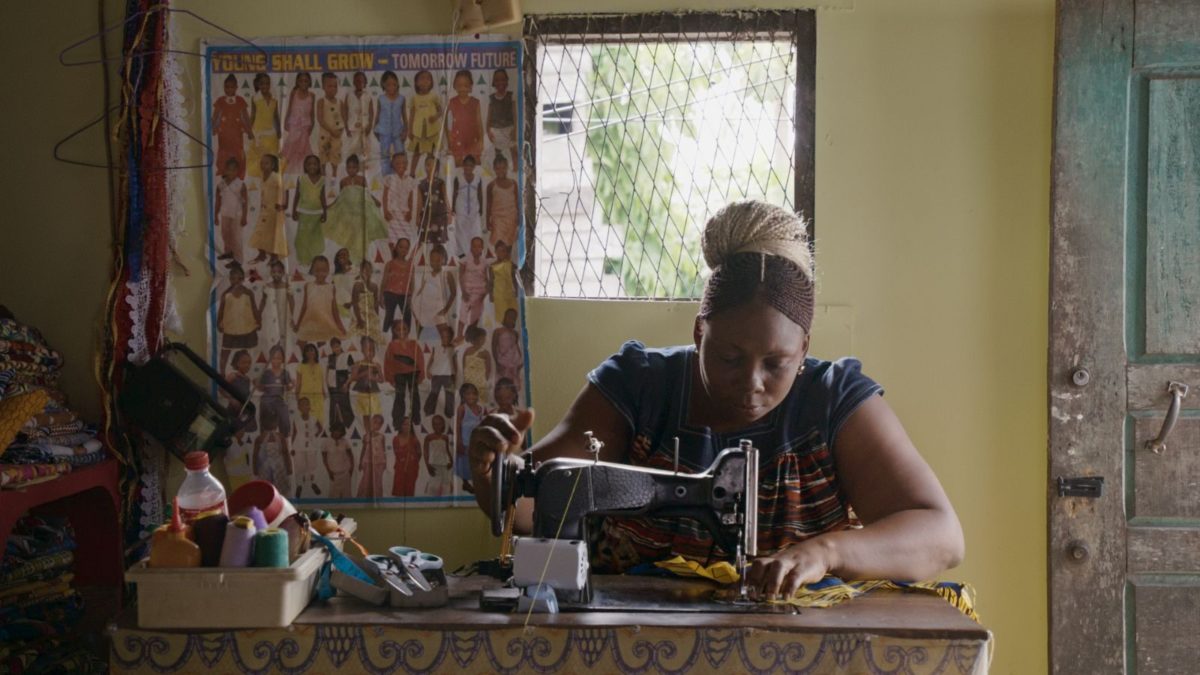
A selection from Cannes, NYFF, and TIFF, Rosine Mbakam’s narrative feature debut will begin its U.S. run at Anthology Film Archives this month. Edward Frumkin said in his NYFF review, “Cameroonian filmmaker Rosine Mbakam uses familiar spaces as microcosms of society. After capturing her subjects in one setting, such as a mall in Chez Jolie Coiffure (2018) and the protagonist’s home in Delphine’s Prayers (2021), her narrative-feature debut Mambar Pierrette foregrounds the eponymous tailor (portrayed elegantly by Mbakam’s cousin, Pierrette Aboheu) and love for her complex family while attempting to make ends meet in Douala. She asserts a determined work ethic in her sewing, attracting a breadth of customers just large enough for Pierrette and co. to get by.”
9. Inshallah a Boy (Amjad Al Rasheed; Jan. 12)
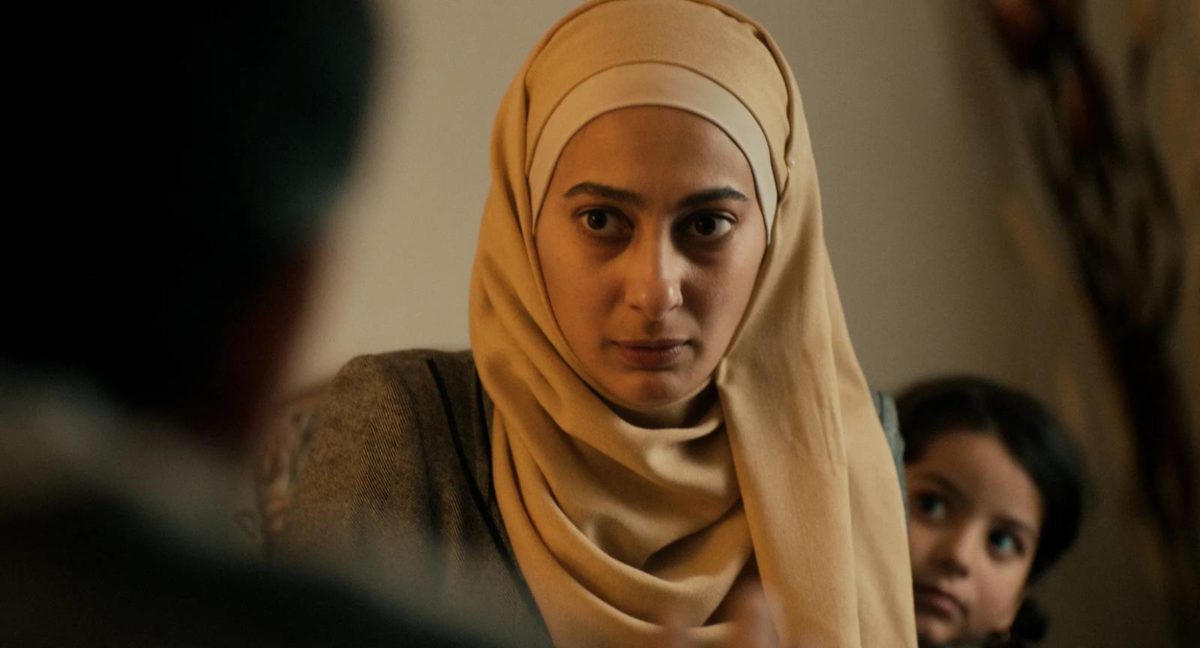
Inshallah a Boy, Jordan’s first-ever selection at the Cannes Film Festival, went on to become the country’s Oscar entry and now it’ll arrive in U.S. theaters this month. Rory O’Connor said in his review, “In Inshallah a Boy, a new film from Jordan, a young mother faces some grueling events. It’s set around the bustling capitol, Amman, a place where temperatures are rarely low. One morning, Nawal (Mouna Hawa) goes to wake her husband but finds him lifeless. She soon learns she is set to inherit their house and his truck, but also four overdue payments for the vehicle. The money is owed to the man’s brother, Rifqi (Haitham Omari), who, benefiting from the country’s Sharia inheritance system, can also claim a slice of Nawal’s home. (Soon the man will believe he should inherit his brother’s daughter, too.) To make matters worse, it transpires that her husband hasn’t been working in weeks and Nawal’s income won’t come close to cutting it. Our hero has two options: sell the truck and pay the debt or convince them all that she’s pregnant with a boy.”
8. Origin (Ava DuVernay; Jan. 19)
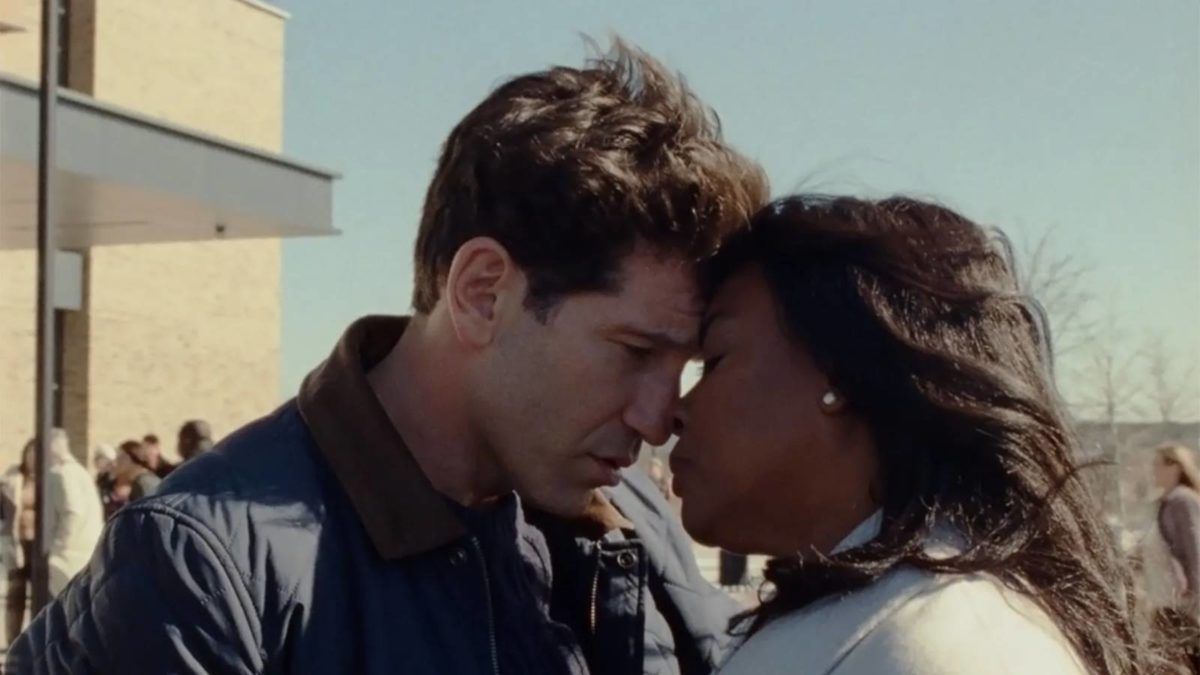
While it made a one-week awards-qualifying appearance in December, Ava DuVernay’s new drama Origin will get a proper theatrical run starting later this month. Savina Petkova said in her review, “The second part of this year’s Venice Film Festival shines with at least two firsts: Ava DuVernay is the first African-American female director competing for the Golden Lion, here with a film about Isabel Wilkerson, the first woman of African-American heritage to win the Pulitzer Prize in Journalism. Origin is inspired by Wilkerson’s seminal 2020 book Caste: The Origin of Our Discontents, but is a stand-alone cinematic retelling of a life, work, and the process of uncovering, from within, the perilous paradigms that shape our social structures. Even if such a premise reads a bit dry, DuVernay’s dedication to rawness and realism puts literary and conceptual devices to good use to make an affecting, vital film for our times.”
7. Apolonia, Apolonia (Lea Glob; Jan. 12)

On the Oscar shortlist for Best Documentary Feature, Lea Glob’s Apolonia, Apolonia will arrive in theaters beginning next week. John Fink said in his DOCNYC review, “Following, in intimate detail, the making of an art star in her early days, Lea Glob’s Apolonia, Apolonia is a powerful meditation on art and evolution. At one early point in the film, reflecting on a new work, Apolonia Sokol speaks directly to the camera, telling us that with ‘identity and work, there is no difference.’ While some films about artists start capturing their subject much later in life, Glob’s picture is a work of serendipity, keeping praise largely in the moment. There are no talking heads or curators to provide context, just the filmmaker and Glob narrating most of the film with the tone of a bedtime story, as if she’s telling her daughter about this mythical time and figure in her life.”
6. Sometimes I Think About Dying (Rachel Lambert; Jan. 26)
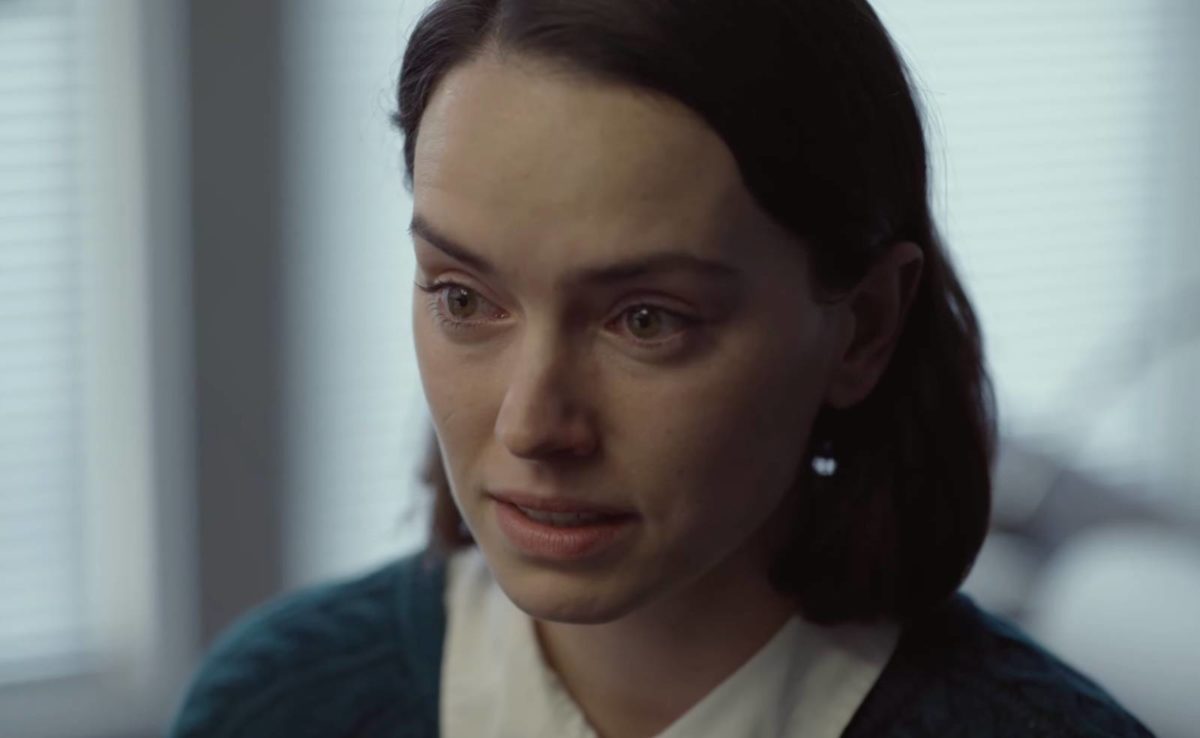
While she says her banal, nondescript, spreadsheet-crafting office job is the only thing she loves in life––besides cottage cheese––one wouldn’t guess it from the way Fran Larsen (Daisy Ridley) carries out her dreary 9-to-5 routine. Spending the labored minutes staring at leakage in the ceiling tiles, gazing at her computer screen, and barely speaking a word to her overenthusiastic colleagues, Larsen has something more existential eating away at her soul: she’s preoccupied with dying. Whether it’s being washed up on a beach, hanging from a crane outside her window, being consumed by the forest, or a violent car crash, she has recurring visions of what could be an escape from her lonely life of isolation. Although not feeling fully formed with its emotionally rushed finale, Rachel Lambert’s Sometimes I Think About Dying is a humorously droll, narratively restrained look at the feigned personalities of workplace office culture and the social anxieties of being forced into such spaces. Continue reading my review.
5. Last Things (Deborah Stratman; Jan. 12)

One of the best works to premiere at Sundance in 2023, Deborah Stratman’s Last Things explores the planet and our history through the point of view of rocks, and it’ll start a 35mm run at Anthology Film Archives next week. Fran Hoepfner said in her top 10 feature, “Despite its experimental nature, I believe that Last Things is––as best a thing can be––’for everyone.’ It is scary and mystical, funny and wholesome. It is both educational and profoundly entertaining.”
4. The Settlers (Felipe Gálvez; Jan. 12)
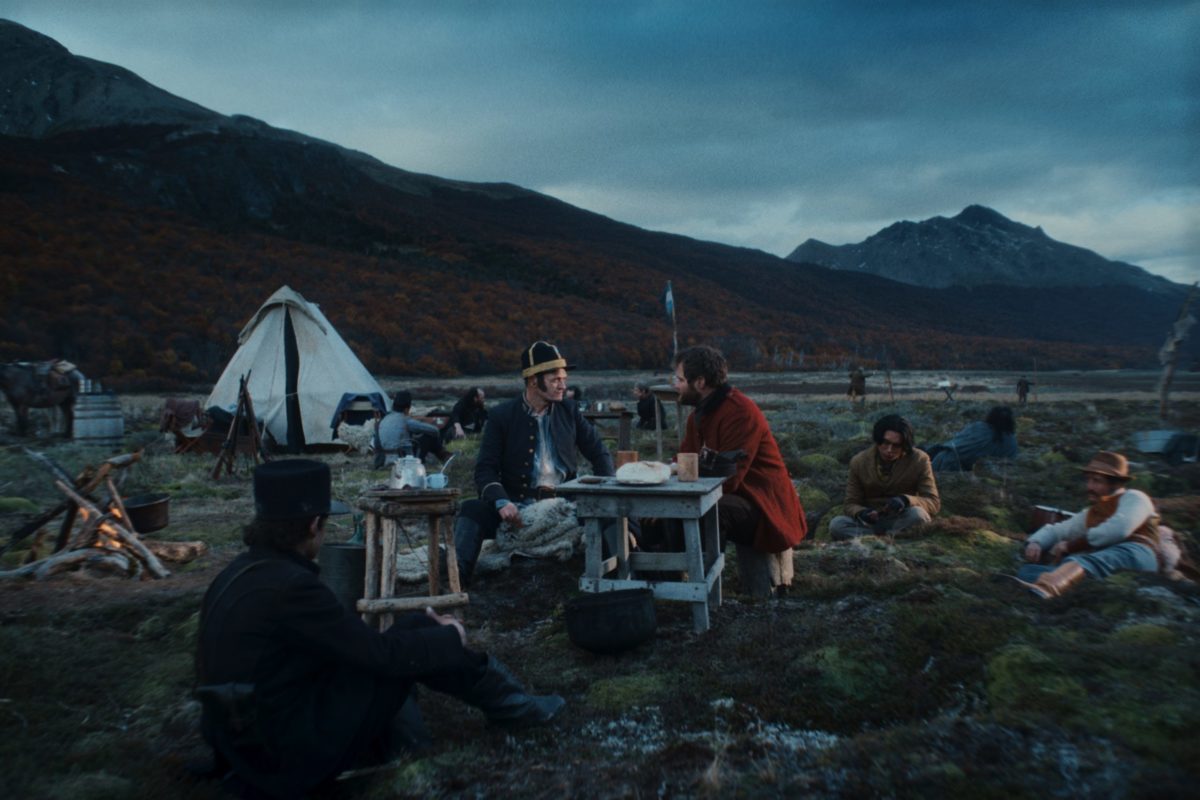
The barbaric, bloody sins of the past come to define what entities govern certain land today, carried out by conquistadors and colonizers who hide behind righteous religious falsities to denigrate an indigenous population. With his directorial debut, a hauntingly conceived Chilean western The Settlers (Los Colonos), Felipe Gálvez localizes an origin story of this horror vis-a-vis the brutal genocide of the now-extinct Selk’nam people, who were native to the Patagonian region of southern Argentina and Chile. While spare early passages are narratively opaque and formally ornate to a distancing fault, the riveting second half––including a chilling reckoning with others occupying the desolate land and a well-executed structural gamble––brings profound expansion to this chilling story of atrocity. Continue reading my review.
3. Pictures of Ghosts (Kleber Mendonça Filho; Jan. 26)
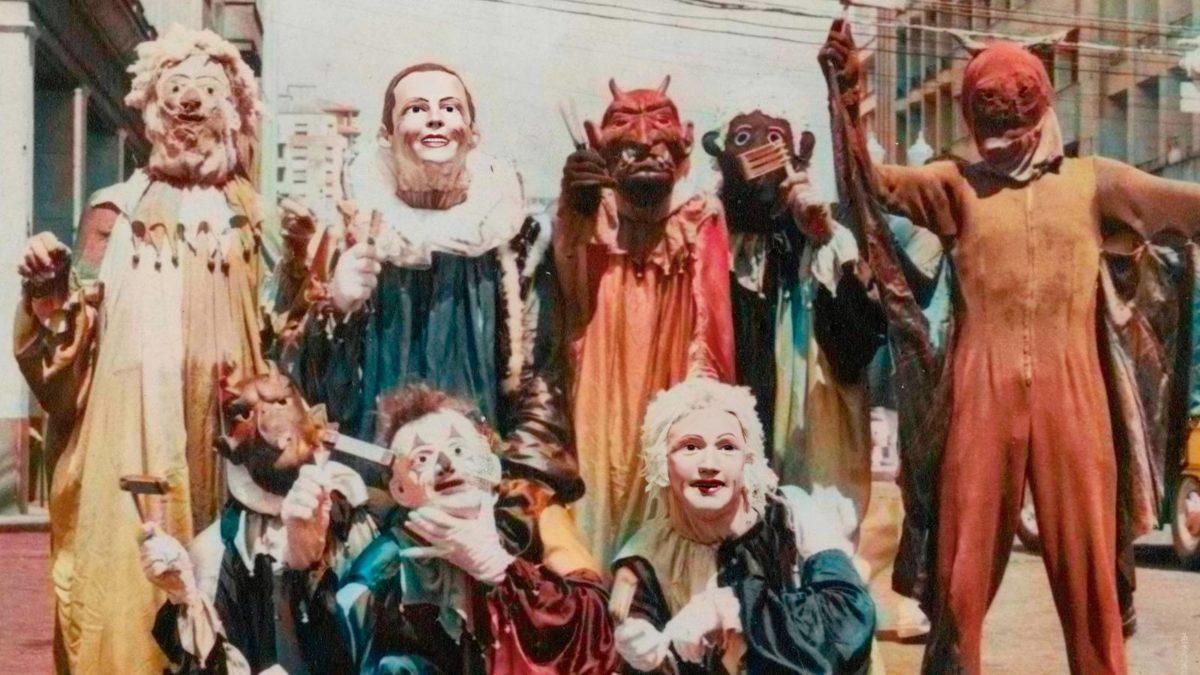
Following up his epic, John Carpenter-inspired thriller Bacarau, Kleber Mendonça Filho is taking a journey his own cinematic past with his personal, probing essay documentary Pictures of Ghosts, Brazil’s Oscar entry. David Katz said in his Cannes review, “If the death of cinema is imminent, at least Kleber Mendonça Filho can play it out with some vintage Tropicália. It’s becoming a nice leitmotif of the Brazilian director’s career, whose ultraviolent Bacurau curtain-raised with Gal Costa’s ‘Não Identificado,’ and latest effort Pictures of Ghosts, which premiered as a Special Screening at Cannes, eases in with Tom Zé’s deceptively jaunty ‘Happy End.’ This is a first-person, arguably selfish movie––in that associated genre, the docu-essay––where Mendonça Filho seems to be waving a teary-eyed goodbye to valuable associations and possessions, perhaps only those of individual sentimental resonance. Yet it’s ‘selfish’ in a productive manner, almost as a function of self-care, like a sunny afternoon lounging on the settee revisiting one’s favorite LPs.”
2. Tótem (Lila Avilés; Jan. 26)
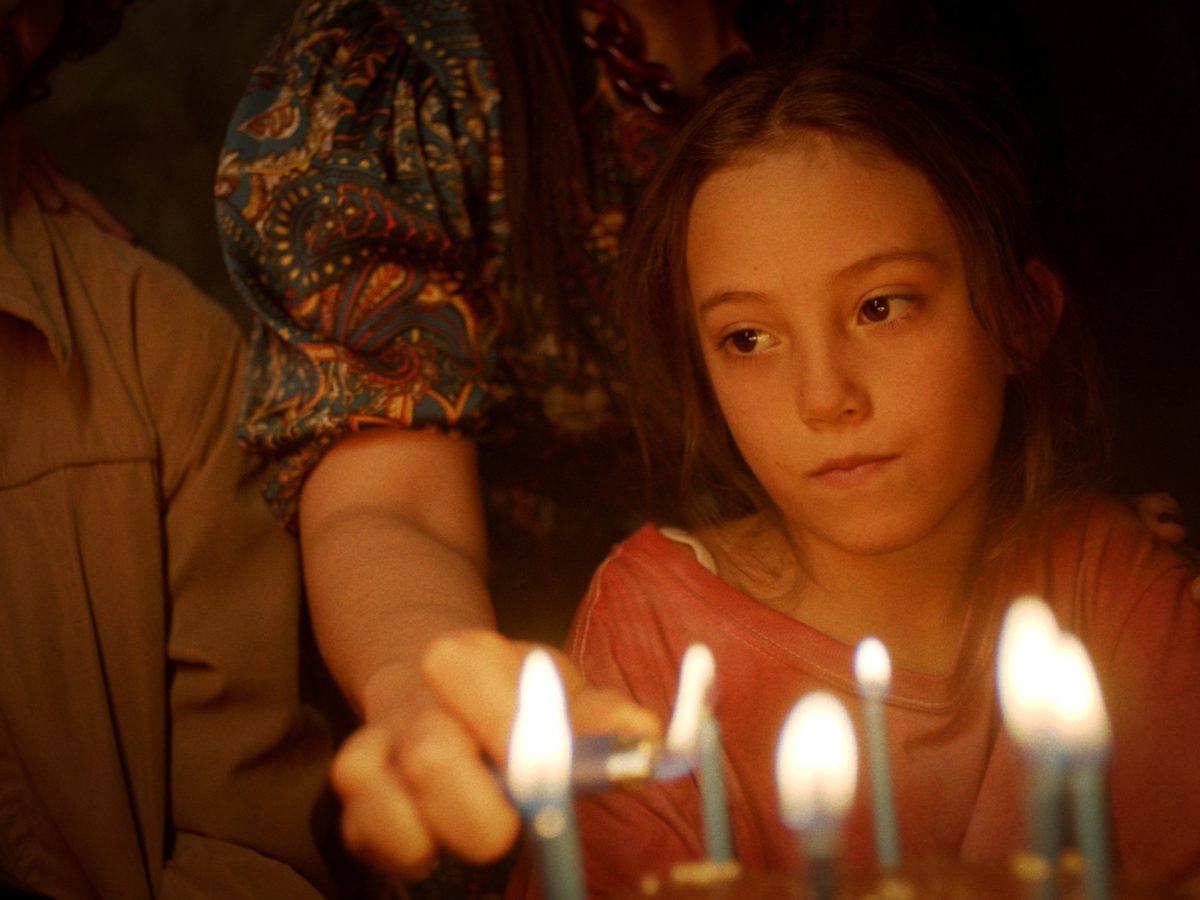
A festival highlight from earlier last year, Lila Avilés’ Tótem is now preparing for a U.S. release to kick off 2024 following an awards-qualifying run. Mexico’s Oscar entry marks the director’s follow-up to The Chambermaid and follows a family over the course of a single, meaningful day, mainly from the perspective of 7-year-old Sol (Naíma Sentíes), as her mother (Montserrat Marañón) and extended relatives prepare for the birthday party of the girl’s father (Mateo Garcia). Rory O’Connor said in his review, “It’s a wonderfully busy piece of work, fraught with messy emotions but in too much of a rush for overt sentimentality; though it does allow for one or two softer moments. The image of Roberto pruning his bonsai amidst all the commotion might be an obvious metaphor, but it’s no less effective for it: Tótem shares the man’s belief that with just the right care and attention (not too much, not too little) something as unruly as a family can be held together, if for a moment, and even shaped into something nice.”
1. Inside the Yellow Cocoon Shell (Phạm Thiên Ân; Jan. 19)
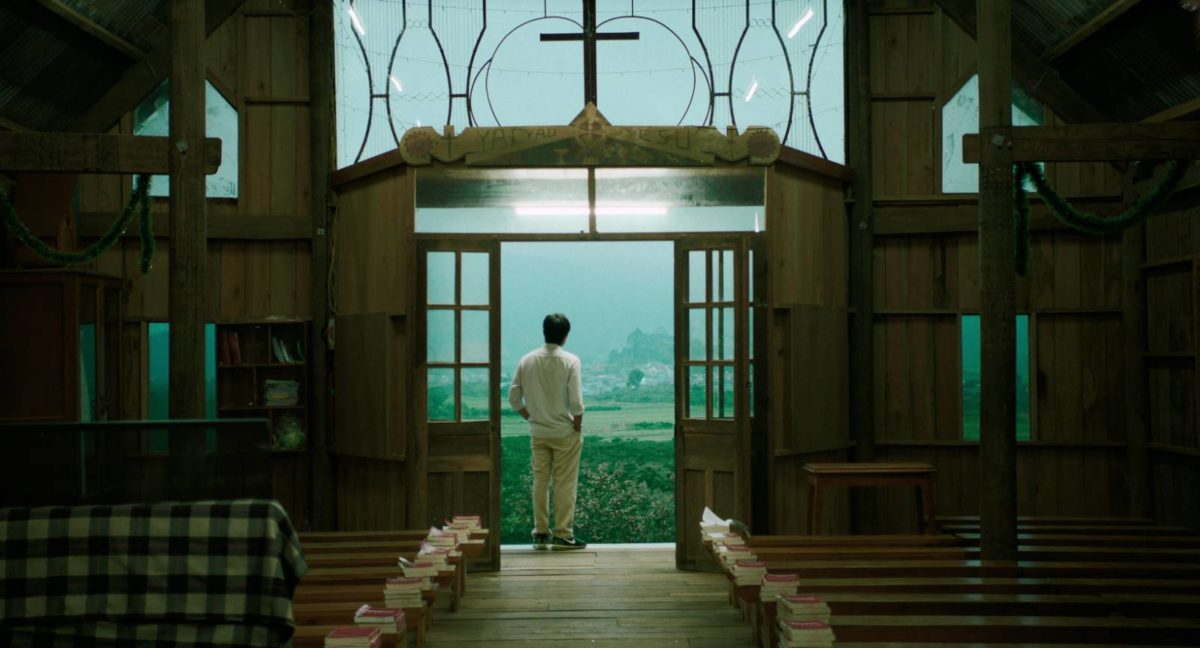
One of the most shocking debut features I saw this past year––in the sense that it was more accomplished than most other films of 2023––was that of Phạm Thiên Ân, whose Inside the Yellow Cocoon Shell is an evocative, beautiful tale that will please fans of Bi Gan and Tsai Ming-liang. Winner of the Camera d’Or at the 2023 Cannes Film Festival, as well as a TIFF and NYFF selection, the film––which follows an uncle searching for his long-lost brother while caring for his five-year-old nephew after his mother dies in an accident––opens in theaters this month.
More Films to See in January
- Driving Madeleine (Jan. 12)
- The Breaking Ice (Jan. 19)
- I.S.S. (Jan. 26)
